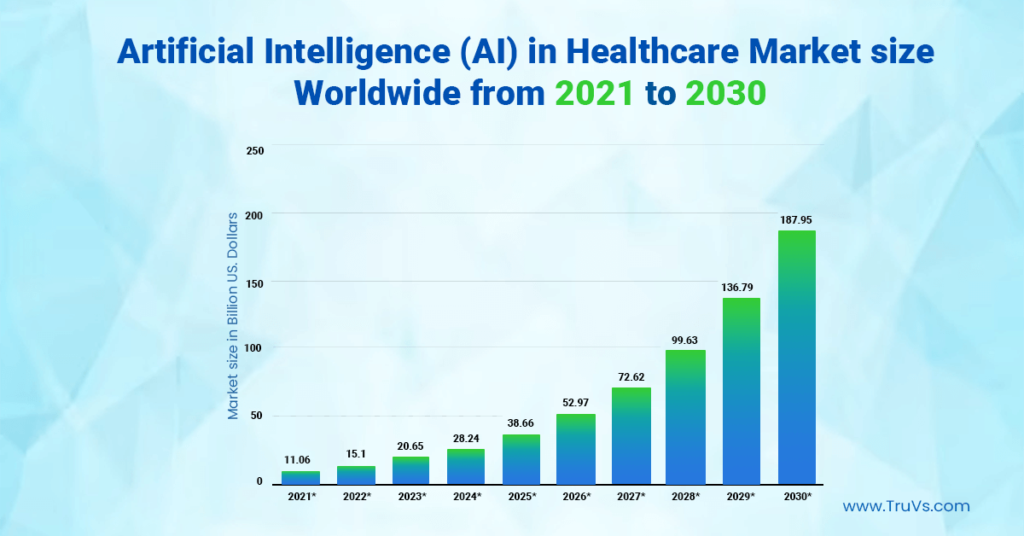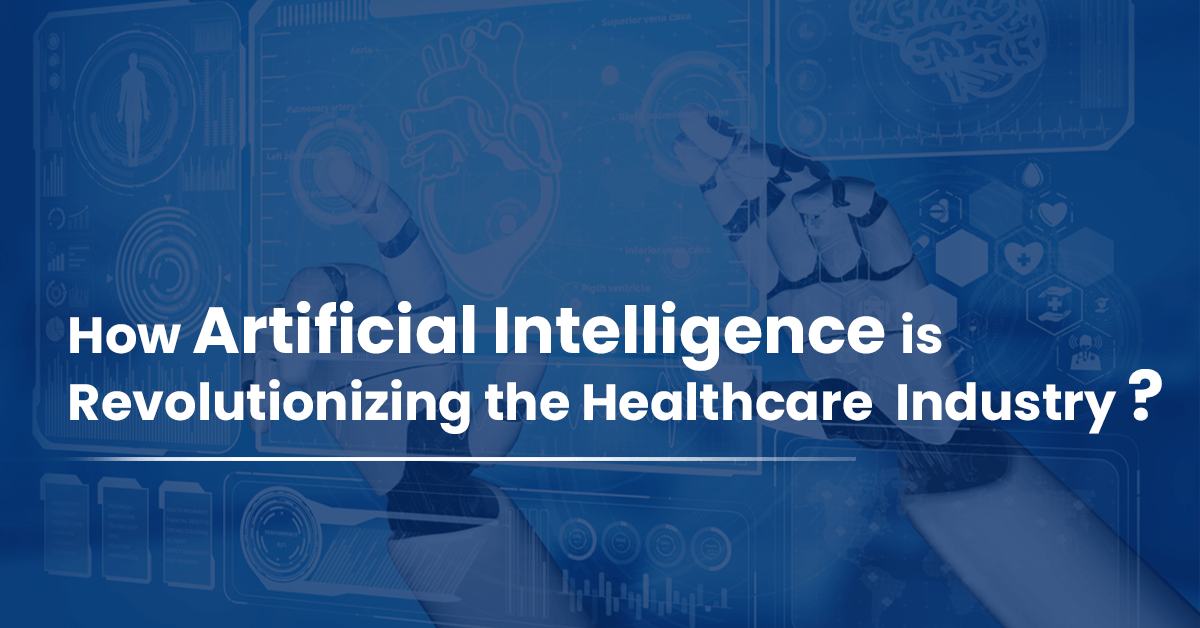Embracing a Digital Future
In today’s rapidly advancing world, technology has become an integral part of our daily lives. With AI’s ability to process vast amounts of data, recognize patterns, and make informed decisions, it is revolutionizing the way we approach healthcare.
According to Statista, AI in healthcare was worth around $11 billion worldwide in 2021 and is estimated to reach $188 billion by 2030, increasing at a CAGR of 37% from 2022 to 2030.

How AI is used in healthcare & technology will reshape the industry in the future:
1. Improved Diagnostics and Early Detection: Artificial intelligence algorithms have proven to be highly accurate in diagnosing diseases. By analyzing medical images, such as X-rays and MRIs, AI can detect even the smallest abnormalities that might be missed by human eyes. This early detection allows for timely interventions, leading to more successful treatment outcomes and potentially saving lives.
2. Personalized Treatment Plans: AI is enabling personalized medicine, tailoring treatment plans to individual patients. By analyzing a patient’s medical history, genetic information, and lifestyle data, AI algorithms can recommend the most effective treatments with fewer side effects. This approach optimizes patient care, ensuring treatments are both safe and efficient.
3. Enhanced Patient Care and Monitoring: AI-powered applications are transforming patient care and monitoring. Virtual assistants can remind patients to take their medications, monitor vital signs, and provide immediate support in emergencies. This not only improves patient compliance but also helps healthcare providers stay informed about their patient’s health conditions in real time.
4. Streamlined Administrative Tasks: AI is automating administrative tasks, allowing healthcare professionals to focus more on patient care. Intelligent chatbots can handle appointment scheduling, answer basic medical questions, and provide general health information. This automation saves time, reduces wait times, and improves overall patient experience.
5. Predictive Analytics and Disease Prevention: AI’s ability to analyze vast amounts of data and recognize patterns allows for accurate predictive analytics. By identifying risk factors and early warning signs, AI can help prevent the onset of diseases such as diabetes, cardiovascular conditions, and even mental health disorders. This proactive approach to healthcare is invaluable in improving public health outcomes.
Conclusion
The integration of artificial intelligence in healthcare is revolutionizing the way we deliver and receive medical care. From improved diagnostics and personalized treatment plans to enhanced patient care and disease prevention, AI is transforming the industry for the better. As we continue to embrace a digital future, we can expect AI to play an even more significant role in healthcare, driving innovation, and improving health outcomes for all.
AI is here to assist and augment healthcare professionals, not replace them. The human touch and empathy will always remain essential in providing quality healthcare.
